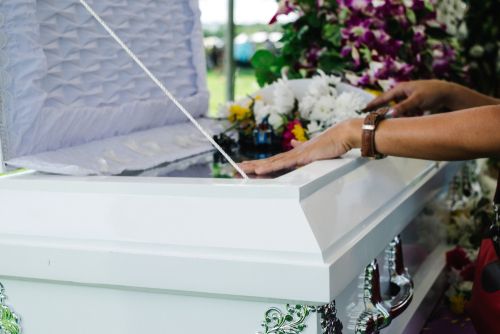 Planning a funeral for someone you love can be a very difficult endeavor. The period after someone has died can be overwhelming, making even the smallest of decisions seem like complete obstacles. Since you want to be sure the event is a fitting tribute to the departed and also fits within your budget, it can be helpful to have a bit of guidance. Review these suggestions and learn about how to get through this challenging time.
Planning a funeral for someone you love can be a very difficult endeavor. The period after someone has died can be overwhelming, making even the smallest of decisions seem like complete obstacles. Since you want to be sure the event is a fitting tribute to the departed and also fits within your budget, it can be helpful to have a bit of guidance. Review these suggestions and learn about how to get through this challenging time.
First Steps
As a person gets older, he or she tends to begin making end-of-life arrangements. Before you start putting together the funeral, you absolutely need to review what the deceased has planned. In many cases, it is common for a person to have insurance or a fund for all of the expenses related to the ceremony and burial. If necessary, reach out to the deceased’s attorney and find out about any paperwork that might exist. A last will and testament usually details everything from the person’s burial wishes to the bequeathment of assets and funds.
However, countless people are not this fortunate. You might find yourself in a position where you need to make all the decisions and foot the bill. If this is the case, support will be absolutely necessary. Reach out to friends and family members and find the emotional or financial support you might need to make it through this experience.
Next Decisions
If there is no will to guide you, then one of the biggest decisions you will need to make is how to handle the body. Burial is the most common choice, though there are plenty of people who opt for cremation. If you opt to have your loved one buried, you will need to determine a location. It is customary to bury someone in the same cemetery as his or her family members. While there are factors that can influence this, such as estrangement or burial costs, this is the most practical way to go.
With a burial, you also want to think about the casket and the memorial marker. While both are an expense, funeral directors can provide you with the most affordable options for your budget without sacrificing quality. With cremation, you may want to think about down-the-line plans. Some people will keep ashes in an urn in their homes, but this doesn’t always bring closure. Sprinkling the ashes in a place that meant a lot to the person can be a fitting way to say goodbye.
Extra Options
All funeral services follow different patterns. You want to take the religious or spiritual beliefs of the deceased into account when putting together the services. From the music played to the rituals included, you want to be certain that the event reflects the departed in a fitting and sensible way. As the planner, it will fall on your shoulders to make sure the service is more than a standard funeral and accurately depicts the life led by the one who has died.
Final Choices
When all of the rest has been decided, you want to focus on the final touches. Selecting a date and time of the services is imperative. Additionally, you need to make an announcement of the death. From the obituary listed in the local paper to a message placed on a social site like Facebook, you need to be sure that as many people as possible are made aware of the services. Again, this is a task a funeral director can help you with when the time comes.
Though losing someone you love is never easy, planning the funeral services doesn’t have to be a challenge. Follow each step and ask for help when needed to put together a fitting tribute for the departed.